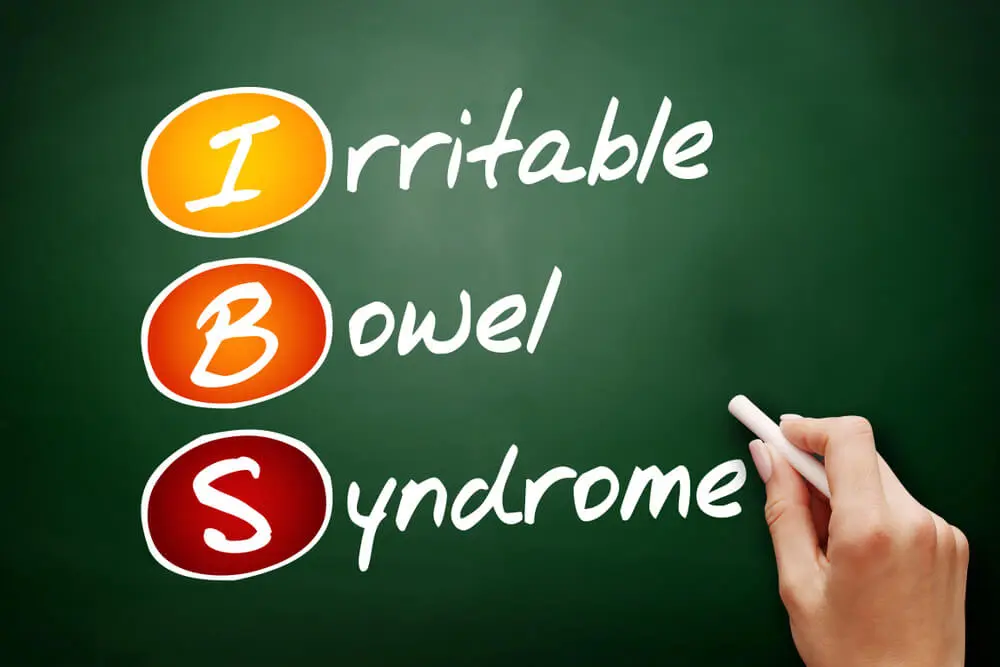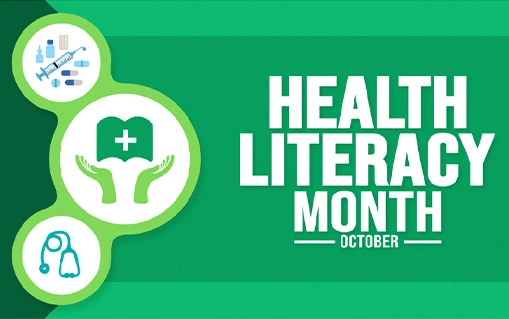October is Health Literacy Month
October is a special month for health enthusiasts and advocates around the world as it marks Health Literacy Month. This annual observance is dedicated to raising awareness about the importance of health literacy and its profound impact on individual and community well-being.
Understanding Health Literacy
Health literacy refers to an individual’s ability to understand and use health information effectively to make informed decisions about their health and well-being. It encompasses a range of skills, including reading, writing, numeracy, and the ability to comprehend and act on health-related information.
Why Health Literacy Matters
- Empowering Individuals: Health literacy empowers individuals to take control of their health. When people can understand medical advice, navigate healthcare systems, and make informed choices, they are more likely to make healthier lifestyle choices and adhere to treatment plans.
- Reducing Health Disparities: Low health literacy is often associated with health disparities. Those with limited health literacy may have difficulty accessing healthcare services, leading to disparities in healthcare outcomes. By improving health literacy, we can work towards reducing these disparities.
- Enhancing Communication: Effective communication between healthcare providers and patients is crucial for quality care. Health-literate individuals can ask questions, seek clarification, and actively participate in discussions with their healthcare team, leading to better health outcomes.
- Cost Savings: Health literacy can also lead to cost savings in the healthcare system. When patients understand their conditions and treatment plans, they are less likely to seek unnecessary medical care or experience complications due to misunderstandings.
- Promoting Public Health: Informed individuals are more likely to engage in preventive measures, such as vaccinations, screenings, and healthy behaviors. This, in turn, contributes to better public health outcomes.
How to Celebrate Health Literacy Month
- Educate Yourself: Take the time to learn about health literacy and its importance. There are numerous resources available online and at local libraries that can help you gain a deeper understanding.
- Share Knowledge: Raise awareness about Health Literacy Month within your community, workplace, or social circles. Share articles, facts, and resources to help others become more health literate.
- Advocate for Clear Communication: Encourage healthcare providers, institutions, and organizations to communicate health information in plain language, avoiding jargon and complex terminology.
- Support Health Literacy Initiatives: Get involved with local organizations or initiatives that focus on improving health literacy. Volunteer your time or donate to causes that promote health literacy education.
Healthy Fall Recipe That Supports Digestion

Here's a delicious recipe for a Roasted Vegetable and Quinoa Bowl:
Ingredients:
For the Roasted Vegetables:
- 2 cups of mixed vegetables (such as bell peppers, zucchini, carrots, broccoli, and red onion), cut into bite-sized pieces
- 2 tablespoons olive oil
- 1 teaspoon dried thyme
- 1 teaspoon dried rosemary
- Salt and black pepper, to taste
For the Quinoa:
- 1 cup quinoa, rinsed and drained
- 2 cups water or vegetable broth
- 1/2 teaspoon salt
For the Lemon-Tahini Dressing:
- 1/4 cup tahini
- 2 tablespoons lemon juice
- 2 tablespoons water
- 1 clove garlic, minced
- Salt and pepper to taste
For Assembly:
- 1/4 cup chopped fresh parsley or cilantro (optional, for garnish)
- Lemon wedges (for serving)
Instructions:
- Preheat the Oven:
- Preheat your oven to 425°F (220°C).
- Roast the Vegetables:
- In a large mixing bowl, combine the mixed vegetables with olive oil, dried thyme, dried rosemary, salt, and black pepper. Toss until the vegetables are well coated.
- Spread the seasoned vegetables out in a single layer on a baking sheet.
- Roast in the preheated oven for 20-25 minutes, or until they are tender and slightly caramelized. Make sure to toss them once or twice during roasting for even cooking.
- Cook the Quinoa:
- While the vegetables are roasting, rinse the quinoa under cold water using a finemesh strainer.
- In a medium saucepan, bring 2 cups of water or vegetable broth to a boil.
- Add the rinsed quinoa and 1/2 teaspoon of salt to the boiling water.
- Reduce the heat to low, cover, and simmer for about 15 minutes or until the quinoa is cooked and the liquid is absorbed.
- Remove from heat and let it sit covered for 5 minutes, then fluff the quinoa with a fork.
- Prepare the Lemon-Tahini Dressing:
- In a small bowl, whisk together the tahini, lemon juice, water, minced garlic, salt, and pepper until well combined. Adjust the consistency with more water if needed.
- Assemble the Bowl:
- In individual serving bowls or a large serving platter, start with a base of cooked quinoa.
- Arrange the roasted vegetables on top of the quinoa.
- Drizzle the Lemon-Tahini Dressing over the vegetables and quinoa.
- Garnish with chopped fresh parsley or cilantro, if desired.
- Serve the roasted vegetable and quinoa bowls with lemon wedges on the side for an extra burst of flavor.
Enjoy your delicious and nutritious Roasted Vegetable and Quinoa Bowl! You can customize this recipe by adding your favorite toppings like avocado slices, toasted nuts, or crumbled feta cheese.
Patient Education

Understanding Irritable Bowel Syndrome (IBS): Symptoms, Causes, and Management
Irritable Bowel Syndrome (IBS) is a common gastrointestinal disorder that affects millions of people worldwide. It’s a condition that can be both uncomfortable and disruptive to daily life.
What is Irritable Bowel Syndrome (IBS)?
IBS is a chronic digestive disorder that primarily affects the large intestine (colon). It’s characterized by a cluster of symptoms related to bowel function, but it doesn’t cause any structural damage or increase the risk of more serious conditions like inflammatory bowel disease (IBD) or colon cancer.
Common Symptoms of IBS:
- Abdominal Pain and Discomfort: One of the hallmark symptoms of IBS is abdominal pain or discomfort, often relieved by a bowel movement.
- Altered Bowel Habits: IBS can cause diarrhea, constipation, or alternating periods of both (mixed-type IBS).
- Bloating and Gas: Many individuals with IBS experience increased gas production and bloating, which can be quite distressing.
- Changes in Stool Appearance: Stools may vary in consistency and appearance, from loose and watery to hard and lumpy.
- Urgency and Incomplete Evacuation: People with IBS might feel a sudden, urgent need to have a bowel movement, even if there’s little stool to pass.
Potential Causes and Triggers:
The exact cause of IBS is still unclear, but several factors may contribute to its development:
- Abnormal Gut Motility: Some individuals with IBS have overly active or sluggish intestines, leading to bowel irregularities.
- Sensitivity to Food: Certain foods and beverages, such as caffeine, alcohol, and high-fat or spicy foods, can trigger IBS symptoms in susceptible individuals.
- Stress and Emotional Factors: Stress, anxiety, and other emotional factors can exacerbate IBS symptoms and trigger flare-ups.
- Inflammation: Low-grade inflammation in the gut may play a role in IBS for some people.
Managing IBS:
While there is no cure for IBS, there are several strategies to help manage and alleviate symptoms:
- Dietary Modifications: Keeping a food diary to identify triggers and making dietary adjustments, such as reducing consumption of trigger foods, can be effective.
- Fiber: Increasing dietary fiber intake can help regulate bowel movements. Soluble fiber sources like oats and fruits can be particularly beneficial.
- Probiotics: Some people find relief from IBS symptoms by taking probiotic supplements, which may help balance gut bacteria.
- Stress Management: Practicing stress-reduction techniques like meditation, yoga, or deep breathing exercises can help manage emotional triggers.
- Medications: In severe cases, healthcare providers may recommend medications such as antispasmodics or laxatives to relieve symptoms.
- Lifestyle Adjustments: Regular exercise, getting enough sleep, and staying hydrated can all contribute to better overall gut health.
It’s essential to consult with a healthcare professional if you suspect you have IBS. They can provide a proper diagnosis and work with you to develop a personalized management plan.
Irritable Bowel Syndrome (IBS) is a common gastrointestinal condition that can significantly impact a person’s quality of life. Although there is no cure, managing IBS is possible through dietary adjustments, stress management, and, in some cases, medications. If you suspect you have IBS, don’t hesitate to seek help from a healthcare provider who can provide guidance and support for managing your symptoms.
Office Updates

Our office at 50 Michels Way in Londonderry is open! Please let us know if you have any questions or need help.

